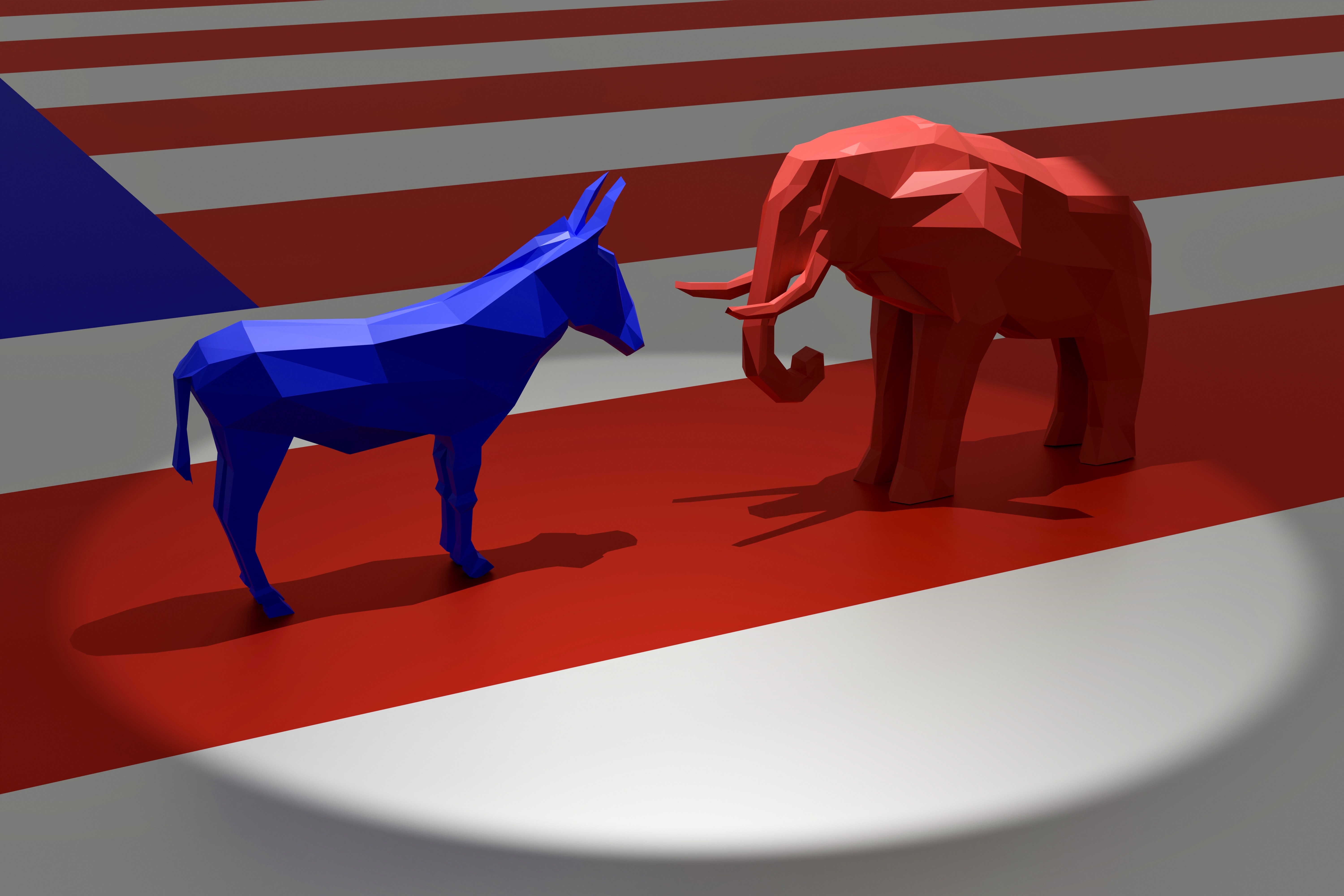In Pennsylvania, two big races in 2022 are likely to determine the course of both local and national politics.
Voters in the Keystone State will play a crucial role in which political party controls Congress, particularly with the open race to replace retiring Republican Pat Toomey in the U.S. Senate. All the while, both Democrats and Republicans see the governor's office as all-important in which party controls state politics for the next four years. Current Gov. Tom Wolf, a Democrat, cannot run for a third term.
With the stakes so high, we’re answering some of the biggest questions about both races below:
When are Pennsylvania’s 2022 primary and general elections?
Get Philly local news, weather forecasts, sports and entertainment stories to your inbox. Sign up for NBC Philadelphia newsletters.
The primary election in Pennsylvania is May 17. The general election is Nov. 8. Polls for both elections will be open from 7 a.m. to 8 p.m.
When is the deadline to register to vote?
The last day to register to vote before the May 17 primary was May 2. NBC News has a very useful tool to determine what the rules and deadlines are for voters in the county where they live. Learn more about the tool here.
How do I register to vote?
You can complete an online voter registration on the Pennsylvania Department of State website.
You can also register to vote through the mail by filling out a voter registration application and sending it to your county voter registration office. The office must have your application by close of business on the voter registration deadline (again, that was May 2 for this election).
Additionally, you can register to vote in person by going to your county’s voter registration office. Some PennDOT locations and other government agencies also allow you to register in person.
Can I vote in the primary?
Pennsylvania has closed primaries. This means that to vote for a member of a certain party, you have to be registered as a member of that party. In other words, if you are unaffiliated with a party, you can’t vote in the primary.
However, unaffiliated voters are allowed to vote in the general election, and they can also have their say when it comes to ballot questions.
What is the deadline for me to register as a member of a political party?
If you’re an unaffiliated voter or if you just want to switch political parties, the deadline was May 2. You can change your party preference on the Department of State website.
Can I vote by mail?
The short answer is yes – for now. But it could get more complicated later this year.
Pennsylvania expanded its mail voting law in 2019, and at the time, it had bipartisan support. The law was part of a deal in which Republican legislative leaders obtained an end to straight-ticket voting.
However, the political landscape shifted after former President Donald Trump falsely claimed vote-by-mail fraud when he lost the 2020 presidential election.
Since then, Republicans in Pennsylvania and around the country have challenged mail-in voting.
In January, a lower court agreed with Republican challenges to Pennsylvania’s vote-by-mail law, ruling that it violated the state constitution. The three Republicans on the court agreed with the challenge, while the two Democrats dissented.
However, Gov. Tom Wolf’s administration appealed the ruling to the Pennsylvania Supreme Court, which has a Democratic majority. The administration asked the court to keep the law in place while it hears oral arguments in the case.
At the beginning of March, the court overturned the lower court’s ruling while it hears arguments in the case.
Nonetheless, the message from the Department of State remains that mail ballots will be allowed for this upcoming election.
When is the deadline to request a mail ballot?
The last day to request a mail ballot for the upcoming elections was May 10. You can request one here.
How do I fill out my mail ballot?
There are a few key points to remember: Be careful when opening your ballot, make sure the ballot is inside the included secrecy envelope before putting it in the outer envelope (thus avoiding a “naked” ballot) and ensure you sign the outer envelope before sending it back. Get a more detailed explanation here and here (note that the second link is an article from 2020, but the same rules apply).
Can I drop off my mail ballot at a drop box?
Yes. Counties will have drop boxes placed at different locations. You must leave your ballot in a box within the county in which you’re registered to vote. Find a drop box in your corresponding county here: Bucks, Chester, Delaware, Montgomery, Philadelphia or in the map and list below.
Who is running for Pennsylvania governor?
The Democratic Party's nominee, Josh Shapiro, filed to run for governor in the midst of serving his second term as Pennsylvania's elected attorney general. He has a clear lane to the party's nomination with no opposition.
Seven candidates remain on the Republican side. Jake Corman, the top-ranked state senator, dropped out on May 11 and endorsed Lou Barletta, the GOP's nominee for U.S. Senate in 2018 and a former congressman known for his crusade against illegal immigration. Lawyer and former congresswoman Melissa Hart dropped out May 13 and also endorsed Barletta.
The other candidates are: Joe Gale, a Montgomery County commissioner; Charlie Gerow, a marketing consultant and longtime conservative activist; state Sen. Doug Mastriano, a force in Pennsylvania's right-wing politics who aligned himself with Trump and pushed to overturn 2020's presidential election; Bill McSwain, a lawyer who was the Trump-appointed U.S. attorney in Philadelphia; Dave White, who runs a large plumbing and HVAC firm and is a former Delaware County councilman; and Nche Zama, a heart surgeon who has directed units at various hospitals in Pennsylvania.
Who is running for the U.S. Senate?
Both parties will have contested primaries.
Four candidates are vying for the Democratic Party's nomination.
They are: Lt. Gov. John Fetterman; second-term state Rep. Malcolm Kenyatta of Philadelphia; liberal activist and Jenkintown borough councilor Alex Khalil; and third-term U.S. Rep. Conor Lamb of suburban Pittsburgh.
On the Republican side are seven candidates.
They are: conservative activist Kathy Barnette, who has aligned herself with leading figures in the Trump-led push to overturn 2020's presidential election; real estate investor Jeff Bartos, who was the party's nominee for lieutenant governor in 2018; lawyer George Bochetto; lawyer Sean Gale; former hedge fund CEO David McCormick; Mehmet Oz, the self-styled health and wellness guru and author best-known as host of daytime TV's “The Dr. Oz Show;" and Carla Sands, Trump's former ambassador to Denmark who ran her late husband's commercial real estate empire in California.
What are the other big races?
In addition to the governor and U.S. senator races, voters will be able to elect a lieutenant governor, as well as representatives across Pennsylvania’s 17 U.S. House districts.
In Southeastern Pennsylvania, every current congressional member representing the region's seven U.S. House districts is running for re-election.
Check out the candidates for those races by clicking here.
For all the candidates, issues and important dates that voters should know about in Pennsylvania, New Jersey and Delaware, go to NBC10's Decision 2022 page. You'll find tools to help you navigate the midterm elections, including when to vote and who will be on your ballots in the primaries and November general elections.




